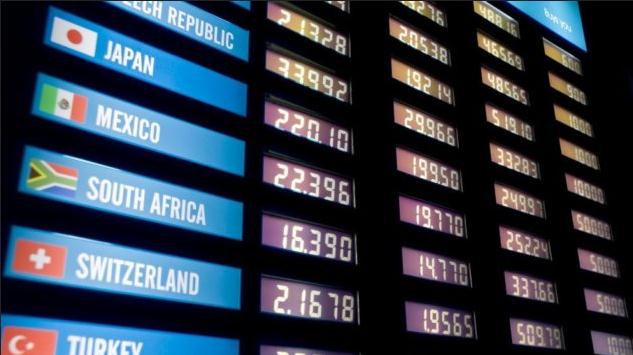The Currency Board System (CBS) is an exchange rate system in which there is an explicit commitment to fix the exchange rate of domestic currency with foreign currency at a fixed level. This is also combined with restrictions on the issuing authority to ensure the fulfillment of its legal obligations. Or in other words, domestic currency will only be issued if it is supported by foreign exchange reserves (in the form of pegged foreign currency).
Main characteristics
There are three characteristics that differentiate the CBS system from other exchange rate systems. Following are the details:
- The government explicitly states its commitment to maintain the value of its currency with the currencies of other countries at a fixed exchange rate.
- Any local money in circulation must be fully guaranteed by foreign exchange reserves. That way, every change in foreign exchange reserves will equally change the money supply or base money. For example, if rupiah reserves increase by 100 billion, to maintain the rupiah exchange rate against the dollar at 1 rupiah = 1 dollar, then foreign exchange reserves must also increase by 10 billion. That way, the rupiah exchange rate against the dollar remains fixed.
- There is no foreign exchange restriction policy.
Apart from using local currency, there are also countries that implement CBS using foreign currency as money circulating in their country, for example, using United States dollars. This system is often called dollarization.
In CBS, every change in foreign exchange reserves will encourage the same change in the money supply or base money. These rules are almost the same as the rules that apply in the gold standard.
The role of the central bank in the Currency Board System
The central bank holds foreign currency reserves to cover the entire monetary base in the country. Expansion and contraction of the m monetary base are directly related to trade and capital flows.
The monetary base is the total amount in circulation, either in the hands of the public or in commercial bank deposits held in central bank reserves. This measure of the money supply usually includes only the most liquid currencies.
Exchange rates are essentially fixed, but are allowed to fluctuate within narrow bands. Not only can central banks still act as lender of last resort , but they can also provide short-term liquidity.
Ideal conditions for a CBS system
CBS systems work best when:
- Domestic prices and wages are very flexible
- The domestic non-tradable economic sector is relatively small
- The global supply of reserve assets is growing at a slow and steady rate, consistent with long-term real growth at stable prices.
Adopting country
Argentina and Hong Kong SAR are two examples of countries that have adopted CBS. Apart from these two, there are also Brunei Darussalam, Bosnia and Herzegovina, Bulgaria, Lithuania, Estonia and Djibouti.
Hong Kong adopted CBS since 1983 and is considered successful in implementing it.
Meanwhile, at the beginning of implementation, Argentina succeeded in reducing the high rate of inflation. However, then, external pressure strengthened due to the lack of competitiveness of export products. Combined with fiscal indiscipline, the country faced an economic recession.
Implications
Expansion and contraction of base money are directly related to trade and capital flows. Trade and capital flows affect foreign exchange reserves. And, every change in foreign exchange reserves will affect changes in base money at the same level.
An increase in the money supply cannot be used to finance the government budget deficit. However, that doesn’t mean the government can’t run a fiscal deficit.
The government can still run a deficit as long as it is funded through the issuance of government bonds.
The central bank cannot act as a lender of last resort . That means the government or central bank cannot help financial institutions when they experience financial difficulties. Therefore, the central bank’s function as a monetary controller is no longer needed.
When does this system work best?
Not all countries are suitable to implement this system. This system requires several conditions to work properly. First, domestic prices and wages must be highly flexible. Second, the traded economic sector must be the most important component of the domestic economic structure. Third, the global supply of reserve assets is growing at a slow and steady rate. Lastly, the successful implementation of this system also requires the support of strict fiscal discipline.
Pros and Cons of Currency Board System
This system allows for low and stable inflation. A fixed exchange rate allows the price of imported products to be stable for domestic consumers.
However, only a few countries implement a currency board system. The reason is that this system demands high credibility and disciplined fiscal policy from the government. Any undisciplined fiscal policy can result in a recession or economic downturn, as happened in Argentina.
In addition, this system is also vulnerable to external pressure. When domestic goods become less competitive in international markets, it reduces foreign exchange reserves as exports fall. As a result, base money (monetary base or M0) also decreases, leading to an economic downturn or recession.

